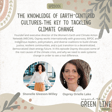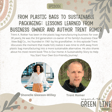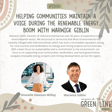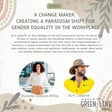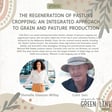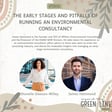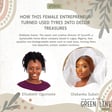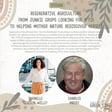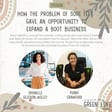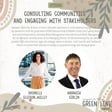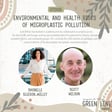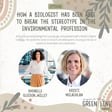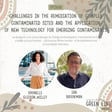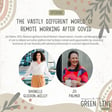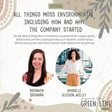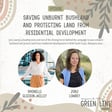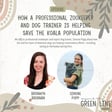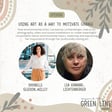
The Society Of Birds And What Is Going On Above Our Heads That We Are Completely Unaware Of
Today on Beyond the Green Line, Shonelle Gleeson-Willey talks with Paul McDonald.
Paul established the Animal Behavior and Ecology Lab, was the president of the Australasian Society for the Study of Animal Behavior, and sat as Chair of Bird Life Australia’s Research and Conservation committee.
He is a Professor at the University of New England where he works on woodland environments, researching woodland areas’ threatened birds and studying factors that may cause the decline of specific bird populations. We learn about some of these factors from him on the episode, including the behavior of other species, local and human behavior, and the decrease in biodiversity in the environment.
Paul’s expertise in the field of bioacoustics assists his team in collecting data. They use sound recordings to analyze environments, capturing and sorting the sounds of everything from wind to vehicle traffic. The team can listen to recorded bird sounds to understand their activity, observe how fragmentation has effected the birds’ life experience, and even assess the biodiversity of their homes.
Recently, the coronavirus, fires, and floods have prevented researchers from being on the grounds as freely, so bioacoustics measurements are proving more crucial than ever.
Paul’s research into vocal communication in birds also feeds into conservation practices and can be applied to environmental impact assessment.
Shonelle’s organization, Moss Environmental, likewise performs ecological assessments that include recordings, so she asks Paul how they can expand their assessments. He explains that by deepening the acoustic data being gathered, and smartly analyzing the hours of audio using computer power, they can add invaluable information to what they’re already surveying on the ground. This acoustical data will assist in looking at what’s left, and in trying to identify areas of concern.
In addition, various other environmental groups can apply these techniques in ways that make sense for their unique areas. Paul reminds us to learn from each other and utilize collaboration in our continued conservation efforts.
Through his research, Paul has learned about multiple factors that shape the sociality in complex bird societies. His team has identified vocal communication and vocabulary including signal detection of a predator, recruitment calls for help, territory-claiming calls, sounds that indicate conflicts in the society, and even markers that are recognizable in each bird’s voice.
We also hear about the difference in the interactions of sub-Saharan African animals verses Australian animals - which include larger scale, mammal-dominated ecology, and different types of productivity in different ecological systems.
The general population can help Australia’s bird societies by getting involved in local bird groups, supporting national parks, and planting diverse foliage in their own back yards to promote the survival of endangered birds.
